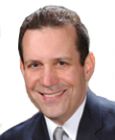Our world offers many answers to our search for purpose: a high-paying job, a comfortable home, the perfect physique, spiritual transformation—a potpourri of possibilities and conflicting “goals.” While many find their solutions outside the home, others cling to their family for answers, hoping to find in their commitment to family the meaning and sense of fulfillment they crave; yet still others avoid the question entirely. We often pick and choose things outside of us that promise to satisfy our yearning for purpose: a good education, building a career, establishing a family, money, parties, travel, and the like. While these are often pleasurable or provide a sense of achievement and satisfaction, they do not necessarily leave us with a sense of meaning, fulfillment, and true purpose.
This fact is made clear at the point of a crisis. When confronted by a crisis, we feel out of control and confounded. Often we cope with our uncertainty by searching for answers. Our established purpose suddenly changes; our questions are difficult: Why is this happening? To whom can I turn? Who am I? Is there a God?
In such moments we feel vulnerable and uncertain, realizing that our routine endeavors do no sustain us. The significance of the purpose that we pursued suddenly appears fleeting and superficial. Yet these challenges provoke authentic moments; they can open doors to deeper dimensions of our nature—maybe even enriching parts of our self and our life we have never seen.
At these times we also find no shortage of outside advice concerning our inner lives. While the ideas of others can be illuminating, only when we are open to discovering our purpose for our self can we experience authenticity and discover fulfilling answers. If we merely import solutions from others to cope with our pain, we may miss opportunities to advance our quest for fulfillment. Only by looking deep into our self and forging genuine connections with our intrinsic gifts can we withstand such crises and use them as opportunities for growth.
Purpose Defined
As far as we can discern, the sole purpose of human existence is to kindle a light of meaning in the darkness of mere being. —Carl Jung

Purpose is the genuine peace and contentment that comes from the authentic relationships we forge. Not simply a by-product of everyday interactions, our purpose is the result of long-term relationships that are both strengthening and affirming. Finding our purpose thus requires attunement to the needs of the crucial relationships in our life.
Our purpose is not something that happens to us; it is something that we make happen. To find our purpose, we must tap our intrinsic qualities, those gifts of the self that uniquely define each of us. Through these qualities, we can tap our authentic person—parts of us that enable us to be truly engaged and, thus, fulfilled. This process is necessarily internal; the athlete who is driven to succeed by his or her parents, by fame, by money, or by any other external motivation is far less likely to be fulfilled than the athlete who is driven by his or her own talent and passion—in doing it.
Freud said, “It is impossible to escape the impression that many people commonly use false standards of measurement—that they seek power, success, and wealth for themselves and admire them in others, and that they underestimate what is of true value in life.” Externally originated motivations are “false standards of measurement.” Genuine purpose does not come from what we do, but from what is of true value in life.
What Does It Mean to Look Inside?
The voyage of discovery is not in seeking new landscapes but in having new eyes.
—Marcel Proust
The answer to our purpose is found by looking inward, at our own self. The blueprint of the road to fulfillment lies within each of us—within you. By looking inside, you can assess your innate qualities.

To look inside is to listen: to hear the voices of your mind, heart, and soul. The idea of ‘looking within’ speaks to a basic human process, and it is a need addressed in all of the world’s great religions.
Soto practitioners of Zen meditation, in Buddhism, find that meditation leads to their true nature of reality and to enlightenment. Enter within.
In the noisy, hectic, stimulus-filled days of modern life, where we are surrounded by so much to do—and so much that pulls us outside of the self—entering within is sometimes unusual. Shutting off the Internet and iPhone can be scary. At home, at work, even on vacation, we are saturated with noise. We may find quiet and stillness deafening. Silence is unfamiliar, remote, and unnerving.
Moreover, the mere act of looking within demands you see something about yourself that you may not like, or something for which you yearn but have ignored or evaded. Taking the risk of looking within means that you cannot avoid questions, and cannot keep so busy you remain on the same path that has diverted you from true and honest assessment.
Looking within will make you stop and wonder: Do you find silence anywhere in your day? Do you listen to the voice of your mind? That voice is what connects you to your self, and lets you begin to understand who you are. Do you listen to the voice of your heart? It is what connects you with others, so you can begin to feel who you are. Do you listen to the voice of your soul?
The voices of our mind, heart, and soul are often unknown to us, and our unawareness of those voices keeps us from realizing their value and from searching for them. Occasionally fear also keeps us from looking within. By listening to our mind, heart, and soul, we see, feel, intuit, and experience powerful forces—negative and positive, dark and illuminating. But only by becoming familiar with what is within us can we know ourselves.
Looking inside allows us to recognize what is of true value: the connection between our True Self and our pursuits and relationships. We must be vigilant to not let our surroundings determine our inner voice, and we can strengthen our voice through the environment we create for ourselves through our connections to our Self, Others, and more. Only after entering within and discovering our own voice can we discover the power available to us to move out to the world authentically and approach our path with integrity.
John T. Chirban, Ph.D., Th.D., is a part-time lecturer at Harvard Medical School and author of Collateral Damage: Guiding and Protecting Your Child Through the Minefield of Divorce (Harper Collins) and True Coming of Age: A Dynamic Process that Leads to Emotional Well-Being, Spiritual Growth, and Meaningful Relationships (McGraw-Hill). For more information visit drchirban.com (link is facebook external) twitter




